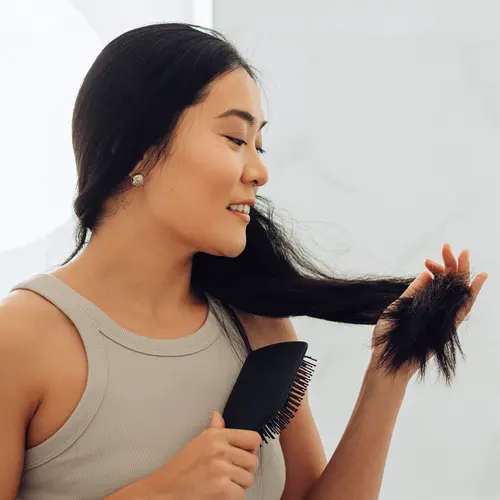Collagen is a protein that your body makes naturally. It’s found in many parts of the body including hair, skin, nails, bones, cartilage, tendons, ligaments, blood vessels, and intestines. It makes your skin more elastic and bones stronger.
As you get older, your body naturally slows down collagen production. When this happens, you may start to see your skin sag and wrinkle. To try to avoid that, some people take collagen supplements. It’s sold in many forms including powders, pills, creams, and injections.
Collagen supplements are usually made from animal products like bone broth using pigs, beef, and fish. But as more people cut back on or eliminate animal products, vegan collagen has become popular. There’s not much research on vegan collagen and its benefits or risks, though.
Can Collagen Be Vegan?
Being a vegan means that you don’t eat anything that came from an animal, include meat, fish, poultry, eggs, dairy products, and even honey. Being a vegetarian is a less strict approach. And other people emphasize plant-based foods without necessarily becoming vegan or vegetarian.
Some scientists say that they’re able to genetically modify things like yeast and bacteria to create animal-free “vegan” collagen. Others are working on ways to bio-engineer it. But more research is needed on whether it delivers the same type of results as animal-based collagen products.
Plant-Based Support for Collagen
When your body makes collagen, it needs nutrients to help with that process. Experts generally recommend prioritizing nutrients from food instead of dietary supplements.
If you’re vegan, there are things you can eat to boost your body’s ability to naturally produce more collagen. Your body also needs foods high in nutrients like vitamin C, zinc, and copper to boost the production.
Plant foods that can help with this include:
Nutritionists suggest you get five to nine servings of fruits and vegetables to meet your body’s needs.
Also, make it a habit to wear sunscreen every day. This can stop ultraviolet rays from the sun from breaking down the collagen in your skin. Use a “broad spectrum” sunscreen that has at least SPF 30 with zinc oxide or titanium dioxide listed in the ingredients. It also helps to stay hydrated so your skin looks its healthiest.
How to Choose Vegan Collagen
If you’re considering buying vegan collagen at your local drugstore or online, be sure to:
- Research the company’s website.
- Look up the active ingredients they use.
- Be skeptical of any claims that may sound too good to be true.
- Don’t take more than the suggested amount.
Tell your doctor about any supplements you take, and why. If you’re having problems with your skin and hair, consult a dermatologist for a diagnosis and a treatment plan.
The FDA does require supplement makers to use good manufacturing practices, but it doesn’t regulate dietary supplements that same way it does prescription medications. If you do take vegan collagen and have a bad reaction, tell your doctor as you would with any supplement or other product.


